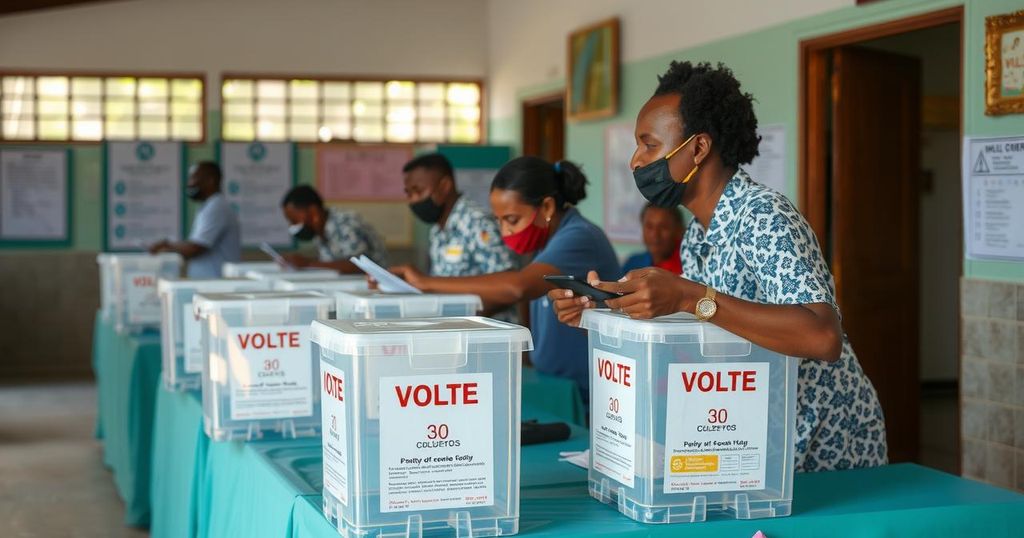World news
ABDALLAH SAMBI, AFRICA, AUSTRALIAN ASSOCIATED PRESS, AZALI ASSOUMANI, COMOROS, ELECTION FRAUD, GOVERNANCE, GOVERNMENT, HAMIDOU KARIHILA, HOPE OF THE COMOROS, INDIAN OCEAN, INDIAN OCEAN ARCHIPELAGO, JUWA, NO, NOUR EL - FATH, OPPOSITION, POLITICS, PRESIDENTIAL ELECTION, REUTERS, SUPREME COURT
Fatima Khan
0 Comments
Comoros Voters Select New Parliament Amid Political Tensions
Voters in Comoros are casting ballots to elect a new parliament, following President Azali Assoumani’s disputed re-election. With 338,000 registered voters and nearly 100 candidates competing, the elections face accusations of government irregularities and calls for boycott from opposition parties. Results are anticipated by Friday.
Voters in Comoros are participating in elections to select representatives for the nation’s 33-seat parliament. This electoral event occurs one year following President Azali Assoumani’s controversial re-election, which the opposition claims was fraught with irregularities, an accusation refuted by officials from the ruling party. Approximately 338,000 individuals are registered to cast their votes at polling stations that opened early on Sunday, a significant event since the last parliamentary elections were held in January 2020. The Supreme Court has approved nearly 100 candidates to compete in this election.
Comoros, an archipelago located in the Indian Ocean, has been politically turbulent since its independence from France in 1975. Azali Assoumani has been at the helm of Comorian politics since he acquired power via a coup in 1999. Following several electoral victories, his governance has faced accusations of authoritarianism, particularly concerning his intention to prepare his son, Nour El-Fath, for succession upon Assoumani’s term conclusion in 2029. The current political environment is characterized by deep divisions, as some opposition factions advocate for a boycott of the elections due to the government’s alleged illegitimacy.
In conclusion, the parliamentary elections in Comoros are taking place against a backdrop of political contention, with claims of electoral irregularities, the looming shadow of authoritarian governance, and differing approaches among opposition parties. The results, expected by Friday, will likely shape the nation’s political landscape and reflect the citizens’ sentiments in navigating the complexities of their governance.
Original Source: www.stawelltimes.com.au




Post Comment